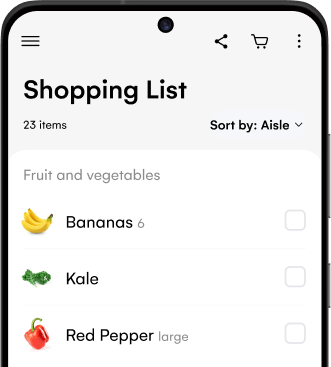Whether you have recently entered the world of vegan eating, don’t like the texture or taste of eggs, or are just looking to replace eggs in recipes for sustainable purposes, we’ve got your back with 20 different vegan egg alternatives. Check them out!
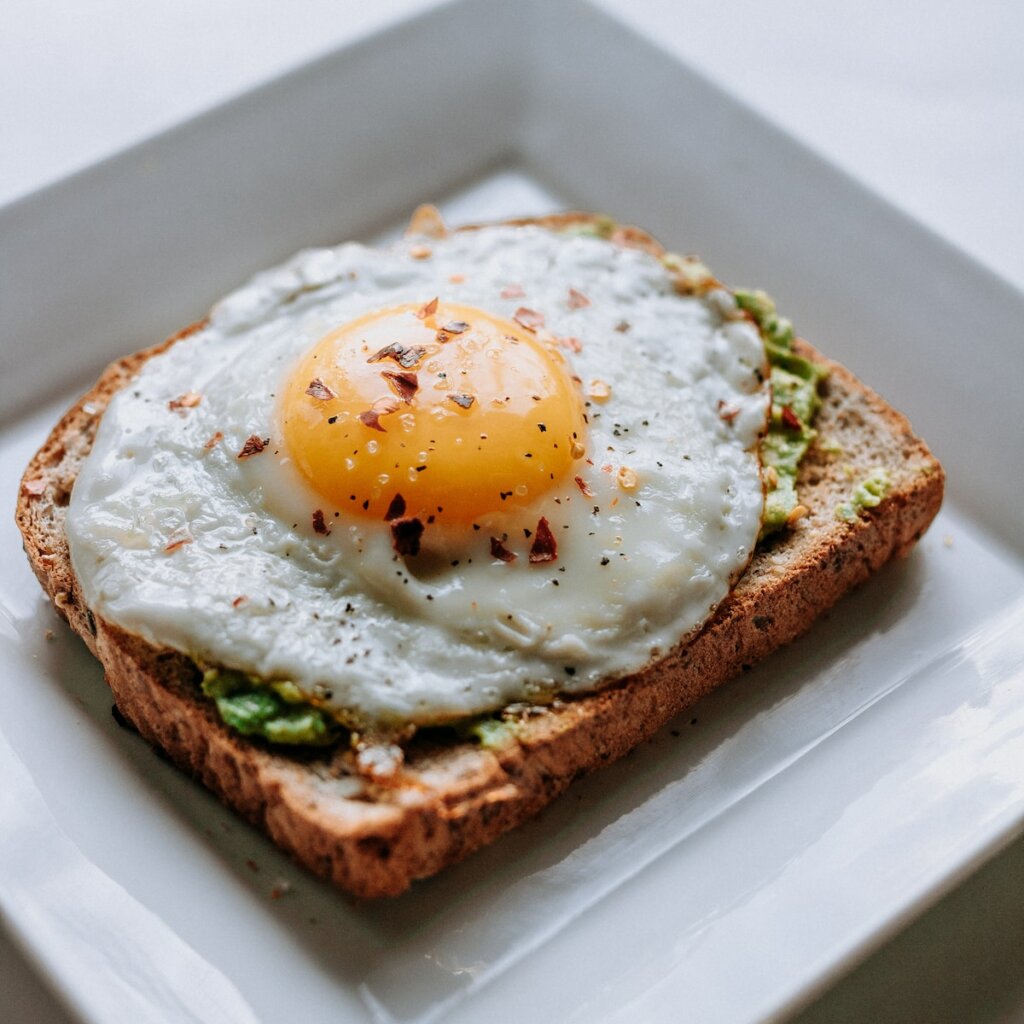
Eggs, commonly found in both sweet and savory recipes, can be easily replaced with a plethora of vegan alternatives that not only match the flavor and texture but also align with your ethical choices. In this comprehensive post, we’ll delve into 20 versatile vegan egg substitutes that will inspire you to create delicious and planet-friendly dishes.
Analyse nutritional information for any recipe

Overview of Vegan Egg Substitutes
- 1. Flaxseed or chia seed eggs
- 2. Applesauce
- 3. Mashed bananas
- 4. Silken tofu
- 5. Vegan yogurt
- 6. Baking powder and vinegar
- 7. Aquafaba
- 8. Vegan buttermilk
- 9. Nut butters
- 10. Carbonated water
- 11. Egg replacers on the market
- 13. Arrowroot powder
- 14. Instant oatmeal
- 15. Vegan sour cream
- 16. Pumpkin puree
- 17. Vegan mayonnaise
- 18. Baking soda and vinegar
- 19. Coconut cream
- 20. Plant-based milk
How to Replace Eggs with Vegan Substitutes in Recipes
Here is a conversion chart to help you get started with swapping out vegan egg substitutes for regular eggs in recipes. Please use it as a guideline and adjust the amounts according to your liking.
| 1 Egg | |
| Flaxseed | 1 tbsp ground flaxseeds + 3 tbsp water |
| Applesauce | ¼ cup |
| Silken tofu | ¼ cup |
| Vegan yogurt | ¼ cup |
| Baking powder with vinegar | 1 tsp baking powder + 1 tbsp vinegar |
| Aquafaba | 3 tbsp |
| Nut butters | 3 tbsp |
| Carbonated water | ¼ cup |
| Potato starch | 2 tbsp potato starch + 2 tbsp water |
| Instant oatmeal | ¼ cup (blended) |
| Vegan mayo | 3 tbsp |
1. Flaxseed or chia seed eggs
Let’s kick off our journey with flaxseed and chia seed eggs, two versatile replacements for traditional eggs. Flaxseeds and chia seeds have rightfully earned their place as stars in the world of vegan egg substitutes thanks to their exceptional binding properties. That means they’ll hold together breadcrumbs, veggie patties, or brownie mixes just as well as regular eggs!
Creating a flax or chia egg is simple, too. For each egg needed in a recipe, combine 1 tablespoon of ground flaxseeds or chia seeds with 3 tablespoons of water. Allow this mixture to rest for about 10-15 minutes until it develops a gel-like consistency and then go ahead and use it as normal.
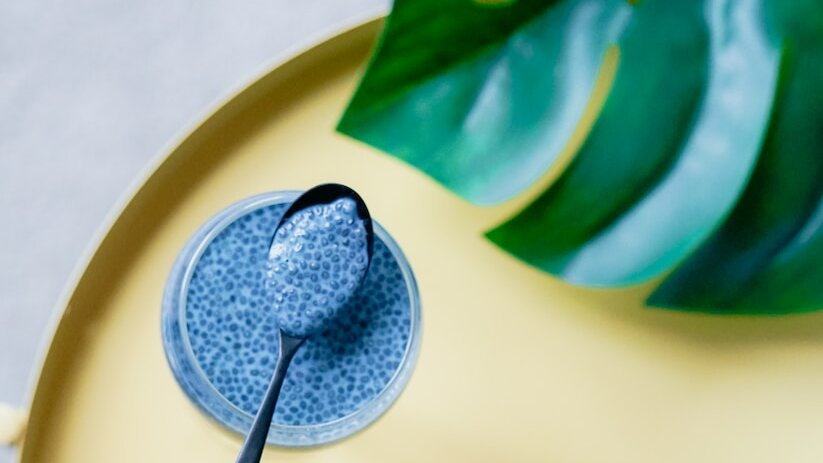
The magic behind flaxseed and chia seed eggs lies in their high soluble fiber content. When mixed with water, they create a gel that mimics the binding action of eggs. On top of that, flaxseeds and chia seeds offer a nutritional boost with their omega-3 fatty acids, fiber, and protein.
2. Applesauce
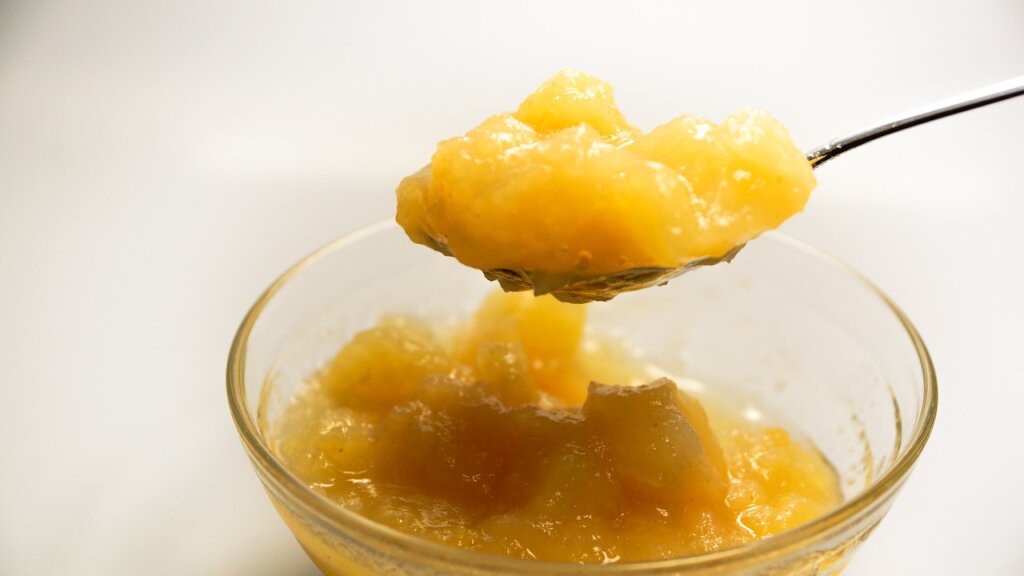
It might not work so well in savory applications (an applesauce omelet, for instance!) but if you want sweetness and moisture in a baking recipe, applesauce comes to the rescue. Applesauce brings more than just texture to the table. It adds a subtle apple flavor that works well with lots of baked treats. Swap each egg with ¼ cup of unsweetened applesauce to add a subtle fruity note.
It’s important to note that while applesauce works beautifully in recipes that benefit from moisture, it may not provide the binding and leavening properties that eggs do.
3. Mashed bananas
Mashed bananas are more than just smoothie additions! They can serve as a valuable egg substitute, especially in recipes where moisture and a hint of sweetness are desired. A ripe mashed banana can effortlessly replace a single egg, adding some nutritional benefits and a topical twist to dishes like banana bread, pancakes, and muffins.
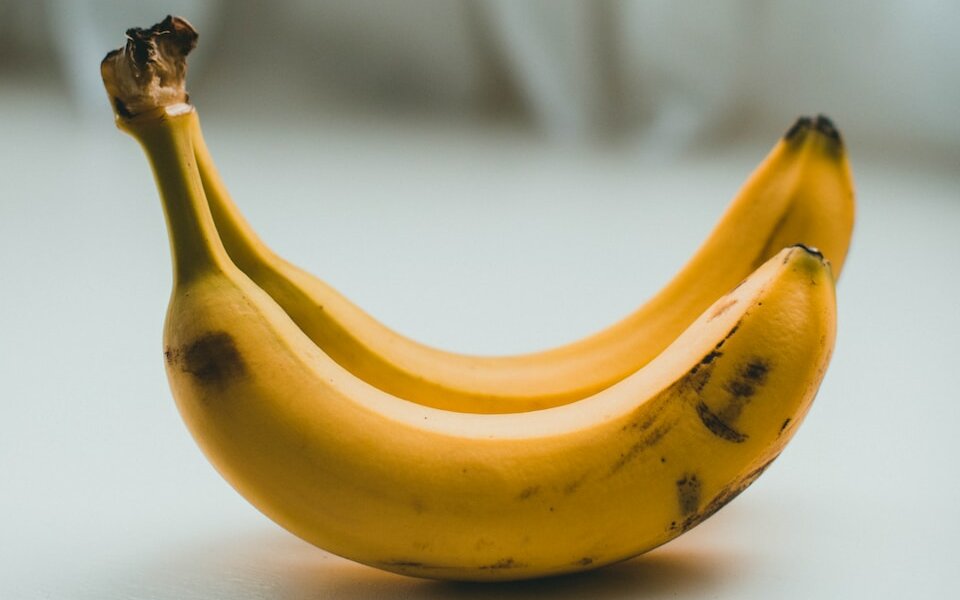
Incorporating mashed bananas not only introduces moisture but they’re a great source of natural sweetness and can be particularly handy when you’re looking to create healthier versions of baked goods.
4. Silken tofu
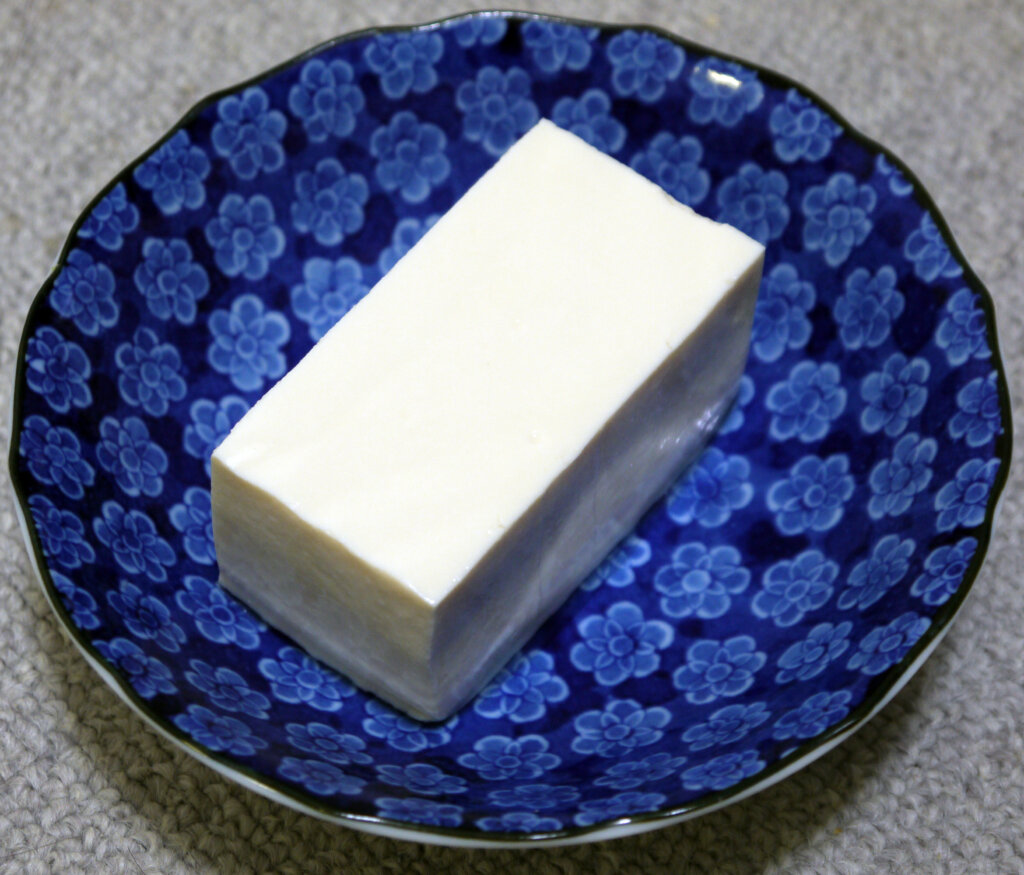
Silken tofu, with its creamy texture, proves to be a versatile vegan egg alternative. Plus, you’ll get loads of extra protein in your dish! When blended until smooth, it can replace eggs by introducing creaminess and structure. Use silken tofu in recipes that demand thickness and moisture, such as creamy desserts, quiches, and custards. The best part of silken tofu as a substitute is that it has such a neutral flavor. Because you can rest assured it won’t change the flavor profile of your recipe, you can use it in both sweet and savory dishes.
Dive into our content and find culinary inspiration

5. Vegan yogurt
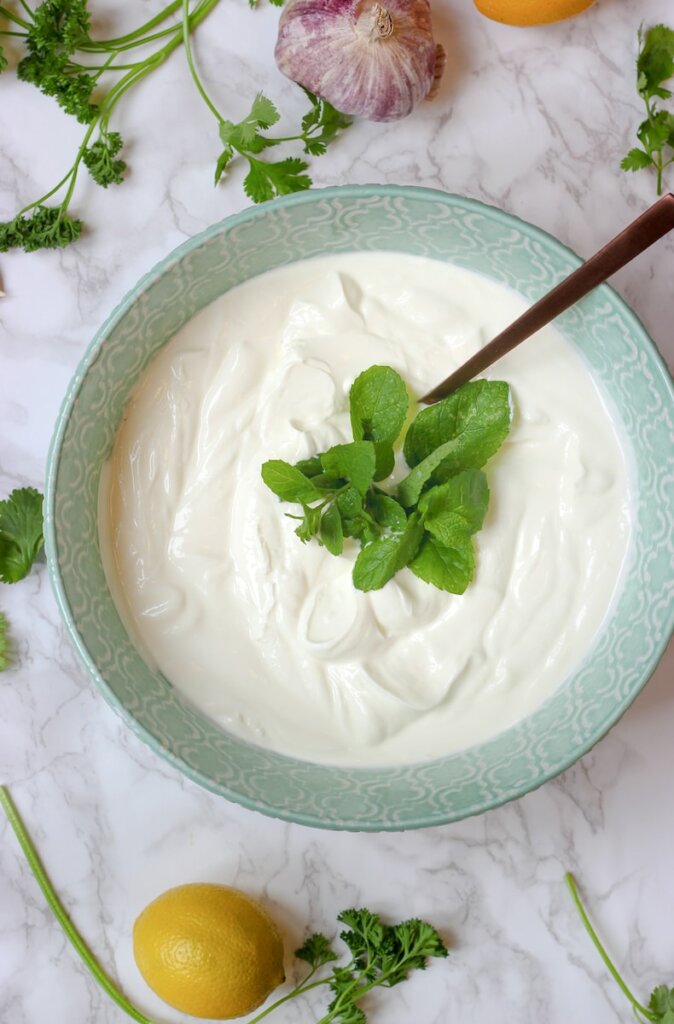
Vegan yogurt steps in as a unique egg substitute, contributing both tanginess and moisture to your recipes. This replacement is particularly useful in recipes like pancakes, muffins, and dressings. Vegan yogurt offers the benefits of probiotics and a creamy consistency. It does, of course, also work well as a substitute for regular yogurt too.
6. Baking powder and vinegar

Who’d have thought? Baking powder and vinegar as a combination are a vegan egg substitute which works well for recipes that require rise and fluffiness. The chemical reaction between the acid (vinegar) and the base (baking powder) creates carbon dioxide bubbles, giving you that airy finish.
The beauty of this substitute lies in its simplicity and effectiveness. Baking powder and vinegar not only add height to your treats but also maintain their delicate crumb structure. Whether you’re baking light and airy cakes or tender muffins, this combination offers a reliable solution for achieving the desired texture.
But of course, know that both vinegar and baking soda have a fairly strong taste. If you’re baking something which is very delicately balanced in terms of flavor, you’ll need to experiment.
7. Aquafaba

Aquafaba, the liquid found in canned chickpeas, has taken the vegan world by storm. It’s a versatile egg substitute that mimics the foaming and binding properties of egg whites. Use aquafaba in recipes that require whipping or aeration, such as meringues, macarons, and marshmallows. The magic of aquafaba is its ability to create stable foams, making it a go-to for anything needing a really light and fluffy texture. Its neutral flavor also means it won’t overpower the taste of your baked goods, allowing the other ingredients to shine.
8. Vegan buttermilk
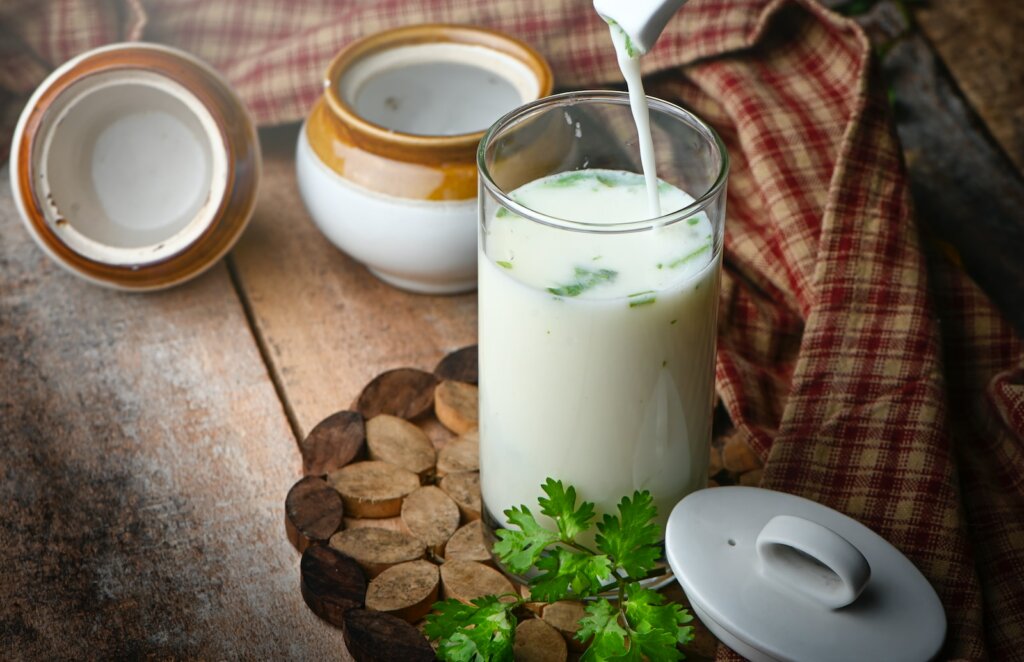
Vegan buttermilk, a plant-based version of traditional buttermilk, is a great vegan egg substitute that adds both moisture and tanginess to your recipes – much like vegan yogurt.
To create vegan buttermilk, combine 1 cup of plant-based milk with 1 tablespoon of vinegar or lemon juice. Let the mixture sit for a few minutes before using it as an egg replacement. Vegan buttermilk is an excellent choice for recipes like biscuits, scones, and pancakes, where moisture and a touch of tanginess are essential.
9. Nut butters
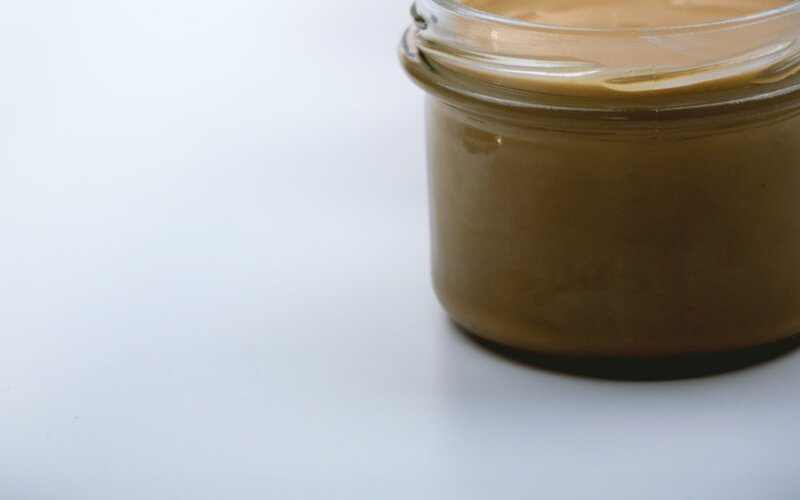
Nut butters, such as almond, peanut, and cashew butter, serve as rich and flavorful vegan egg substitutes. For each egg, use three tablespoons of your preferred nut butter to introduce creaminess and depth of flavor to your creations. This substitute is particularly well-suited for recipes that benefit from nutty undertones, like ginger cookies, rich brownies, and energy bars.
10. Carbonated water

This is probably one of the more unusual options on this list! Carbonated water steps in as a surprising vegan egg substitute when you need to introduce lightness. Much like baking soda and vinegar, it can add airiness and a fluffy texture, making it perfect for recipes that require a delicate rise, such as waffles, pancakes, and certain cakes. The secret behind carbonated water lies in its ability to release carbon dioxide gas when mixed with other ingredients. This gas creates tiny bubbles, resulting in a lighter and fluffier texture.
While carbonated water may not offer the binding properties of eggs, its neutral taste and contribution to good texture means it’s still worth knowing about when it comes to egg replacements.
11. Egg replacers on the market
Commercial egg replacers are pre-made products designed specifically to mimic the binding, leavening, and moisture-retaining properties of eggs in various recipes. They offer a standardized and reliable solution for replacing eggs, making vegan baking and cooking more accessible and successful. These replacers are available in powder, liquid, or gel form, and they are typically made from a combination of plant-based ingredients.
12. Potato starch
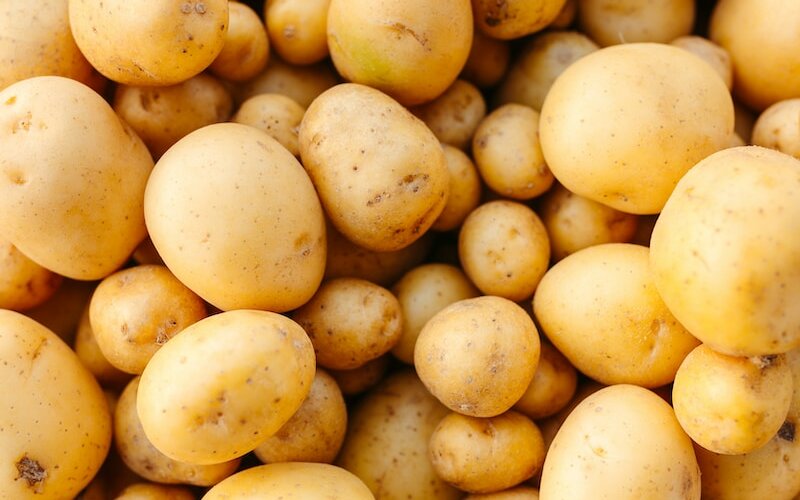
For recipes that benefit from both structure and moisture, potato starch can work as a reliable alternative to eggs. By blending 2 tablespoons of potato starch with 2 tablespoons of water, you create an effective egg substitute that will hold your baked goods together. This substitute is particularly useful in recipes like cakes, cookies, and muffins.
13. Arrowroot powder

Much like potato starch, arrowroot powder serves as an exceptional binding agent in vegan cooking. Mixing 2 tablespoons of arrowroot powder with 2 tablespoons of water produces a versatile egg substitute that contributes to the texture and consistency of your recipes. From gravies to baked goods, arrowroot powder helps to bind and thicken without clouding the flavors of your dishes. It offers a smooth finish and works particularly well in recipes that need that glossy appearance, like a great chocolate sauce.
14. Instant oatmeal
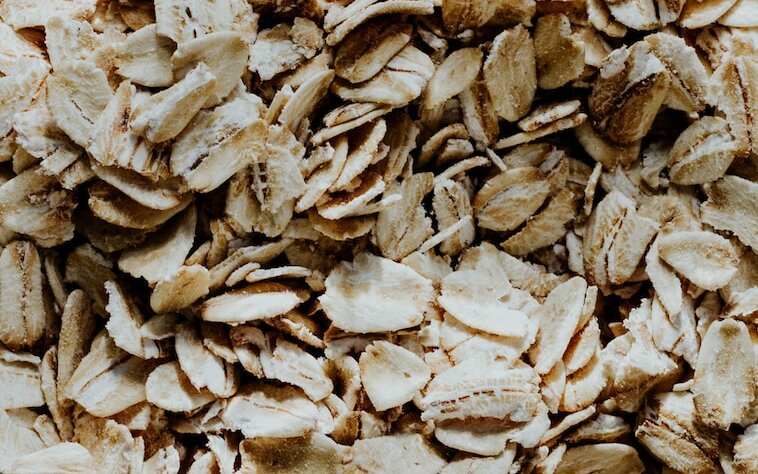
Instant oatmeal certainly makes a quick and healthy breakfast. But there’s another reason to keep a box of it in your cupboard. It also works as a vegan egg substitute that contributes both structure and moisture to your creations. And there’s the extra fiber benefits too! Its ability to absorb liquid and add a subtle nutty flavor makes it a dependable choice in the world of egg alternatives.
15. Vegan sour cream
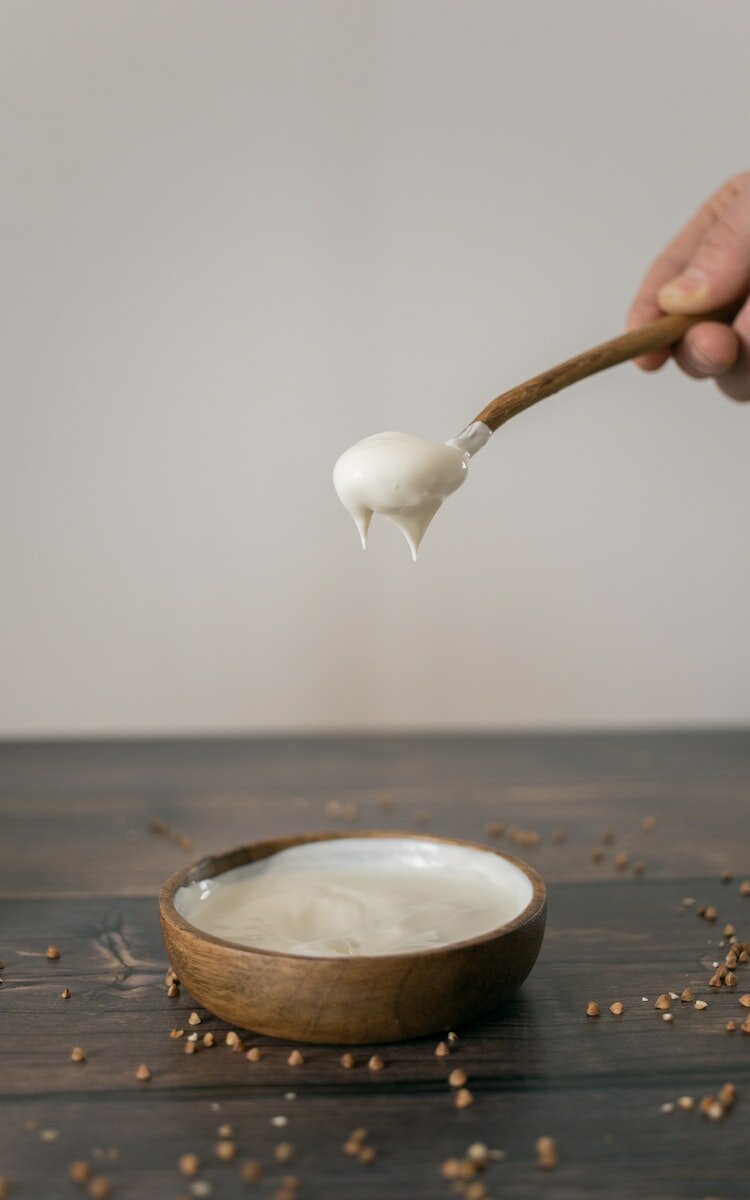
Vegan sour cream shines in both sweet and savory recipes, providing a touch of indulgence. Again, it works similarly to both buttercream and yogurt, so you’ll always have options available! The rich and tangy profile of vegan sour cream adds depth and moisture to your dishes. You’ll get a smooth, velvety finish and a rich flavor profile with a bit of tang. Of course, it doesn’t bind and leaven as well as some of the other vegan egg substitutes on the market.
16. Pumpkin puree
Pumpkin puree isn’t just reserved for fall delights and Christmas centerpieces. It’s a versatile vegan egg substitute that introduces moisture and a gentle flavor to your creations. This substitution works wonders in recipes like muffins, pancakes, and cakes. Pumpkin puree contributes not only moisture but also a mild sweetness that complements a range of dishes. Rich in vitamins and minerals, it adds a nutritional boost to your recipes, making it a wholesome choice for both flavor and health.
17. Vegan mayonnaise
Vegan mayo takes its place as a surprising yet effective egg substitute. Although, when you think about it – mayonnaise is meant to be egg-like in many ways! This substitute excels in savory dishes, but you might be surprised to realize it works really swell in sweet dishes too.dding a touch of indulgence. The texture and tanginess of vegan mayo mimic the attributes of eggs, making it a suitable replacement. Its versatility ensures it blends seamlessly with various flavors, elevating both the texture and overall profile of your dishes.
18. Baking soda and vinegar
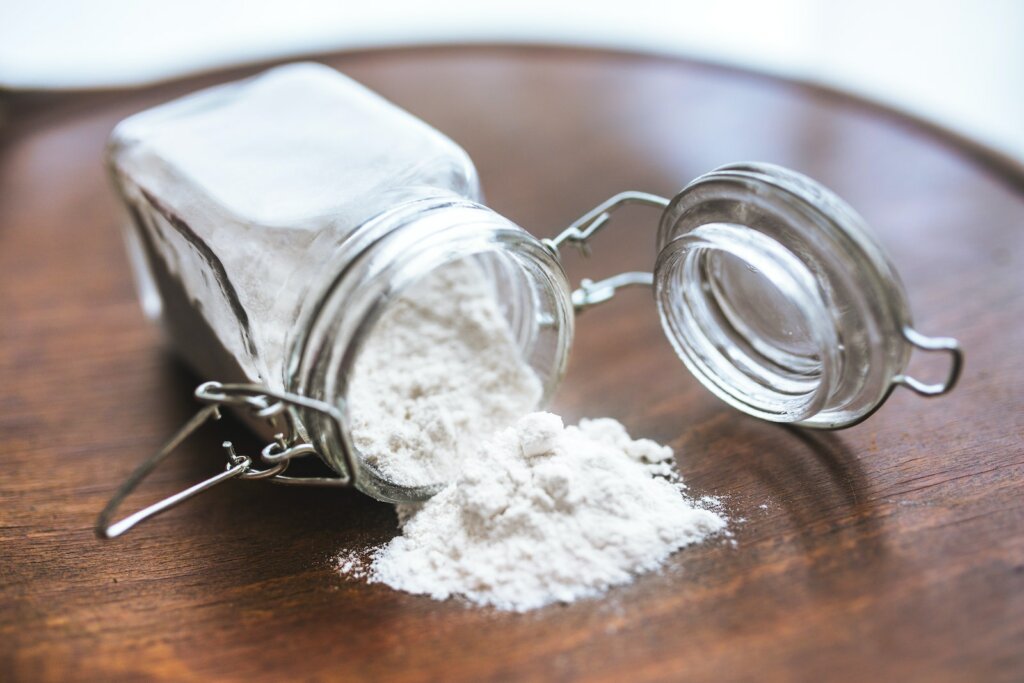
Just like the baking powder and vinegar duo we introduced to you earlier, this classic combination of baking soda and vinegar is also a powerful vegan egg substitute that adds lift and fluffiness to your baked goods. All you need to do is mix 1 tablespoon of vinegar with 1 teaspoon of baking soda to replace one egg to create carbon dioxide bubbles that lead to the desired rise in your baked goods.
19. Coconut cream
For recipes that benefit from a bit of extra creaminess and richness, coconut cream could be the perfect vegan egg substitute. This substitute is particularly effective in desserts like pies, puddings, and creamy sauces. Coconut cream brings a hint of the tropics to your dishes, along with a satisfying richness. It’s particularly good when paired with citrus or with other tropical-inspired ingredients like banana or pineapple.
20. Plant-based milk
When eggs aren’t the primary binding agent, plant-based milk can be used too. Of course, milk is quite runny so if the egg is mainly to hold things together, it won’t work. But if it’s for moisture rather than binding then in many recipes, you can replace eggs with an equal amount of your preferred plant-based milk, be it almond, soy, oat, or coconut.
FAQs
The flavor of your recipe might be slightly affected by certain vegan egg substitutes like applesauce or bananas. However, many substitutes are relatively neutral in taste and won’t drastically alter the flavor.
No, vegan egg substitutes don’t always have a 1:1 ratio with eggs. The right ratio depends on the specific substitute and the recipe you’re making. It’s a good idea to experiment and adjust quantities accordingly but you can start with our conversion chart to help you.
Consider the role of eggs in your recipe (binding, leavening, moisture, etc.) and choose a substitute that best matches that role. Additionally, experimenting and researching recipe-specific recommendations can help you make informed choices.
Vegan egg substitutes generally have different nutritional profiles than eggs. Some substitutes offer benefits like lower cholesterol and saturated fat content, while others might contribute more fiber or antioxidants. It depends on the specific substitute and your dietary goals.
Yes, you can often use substitutes in recipes that require egg yolks. However, keep in mind that the color and richness from egg yolks might not be replicated perfectly by vegan alternatives.
We hope we’ve helped you broaden your knowledge around vegan egg substitutes! . Don’t hesitate to experiment, adapt, and celebrate the diversity that vegan cooking offers – and please let us know which one is your favorite by sharing your recipes on Samsung Food!
